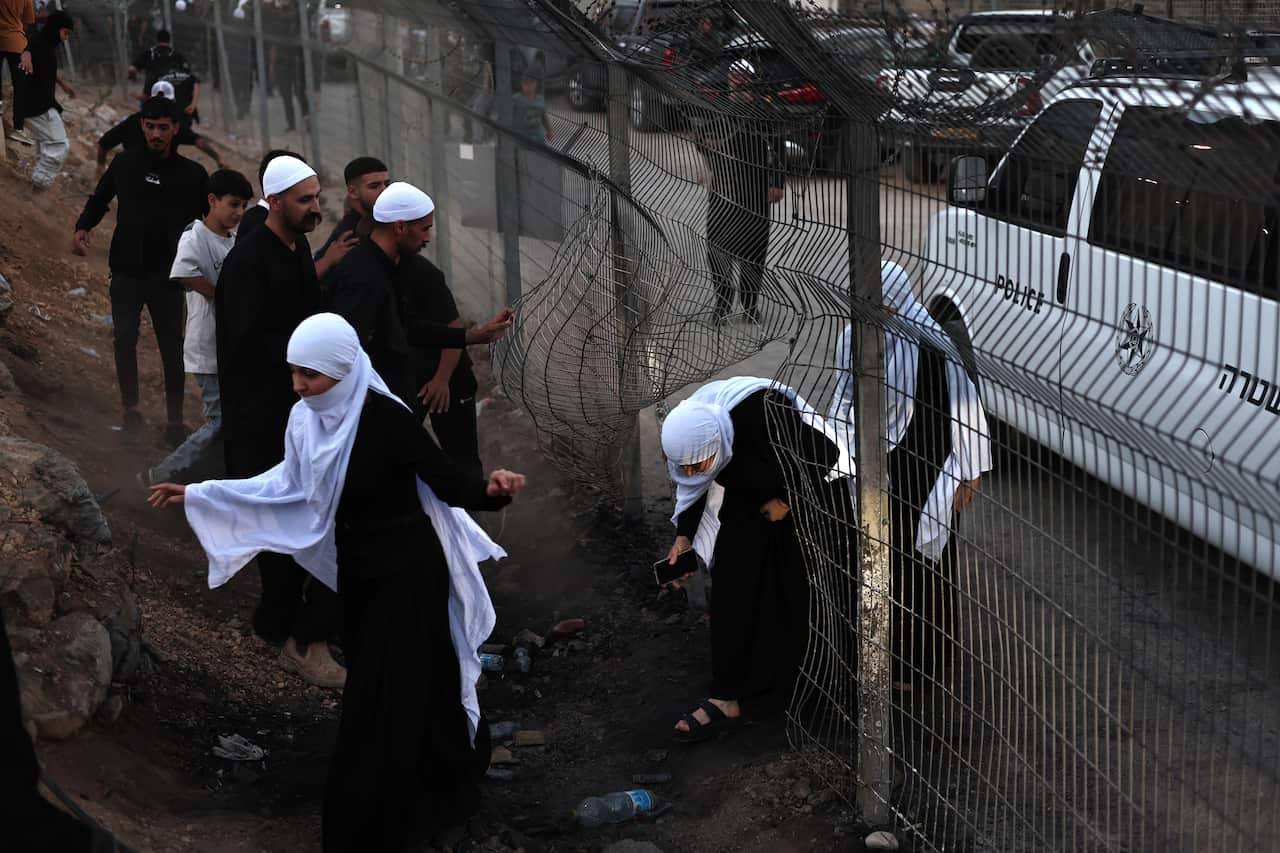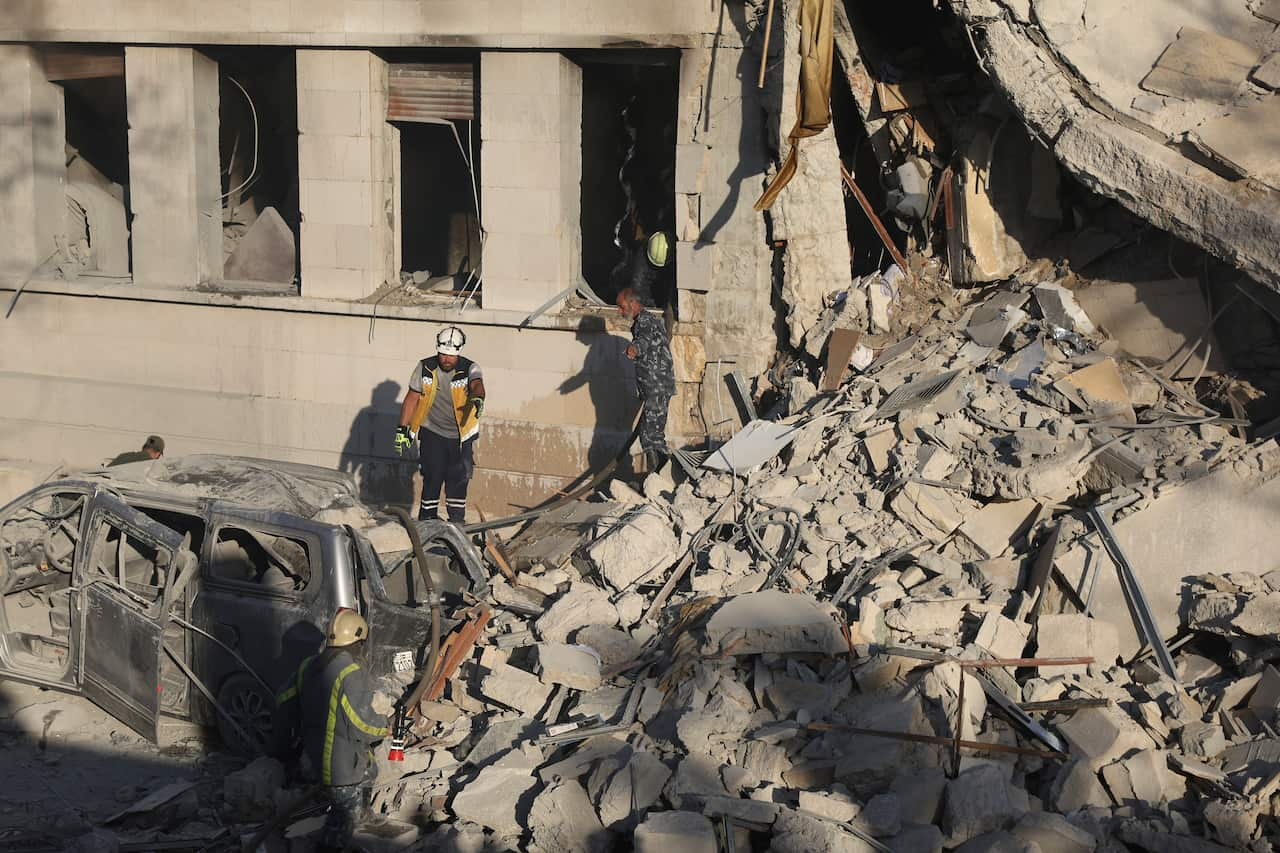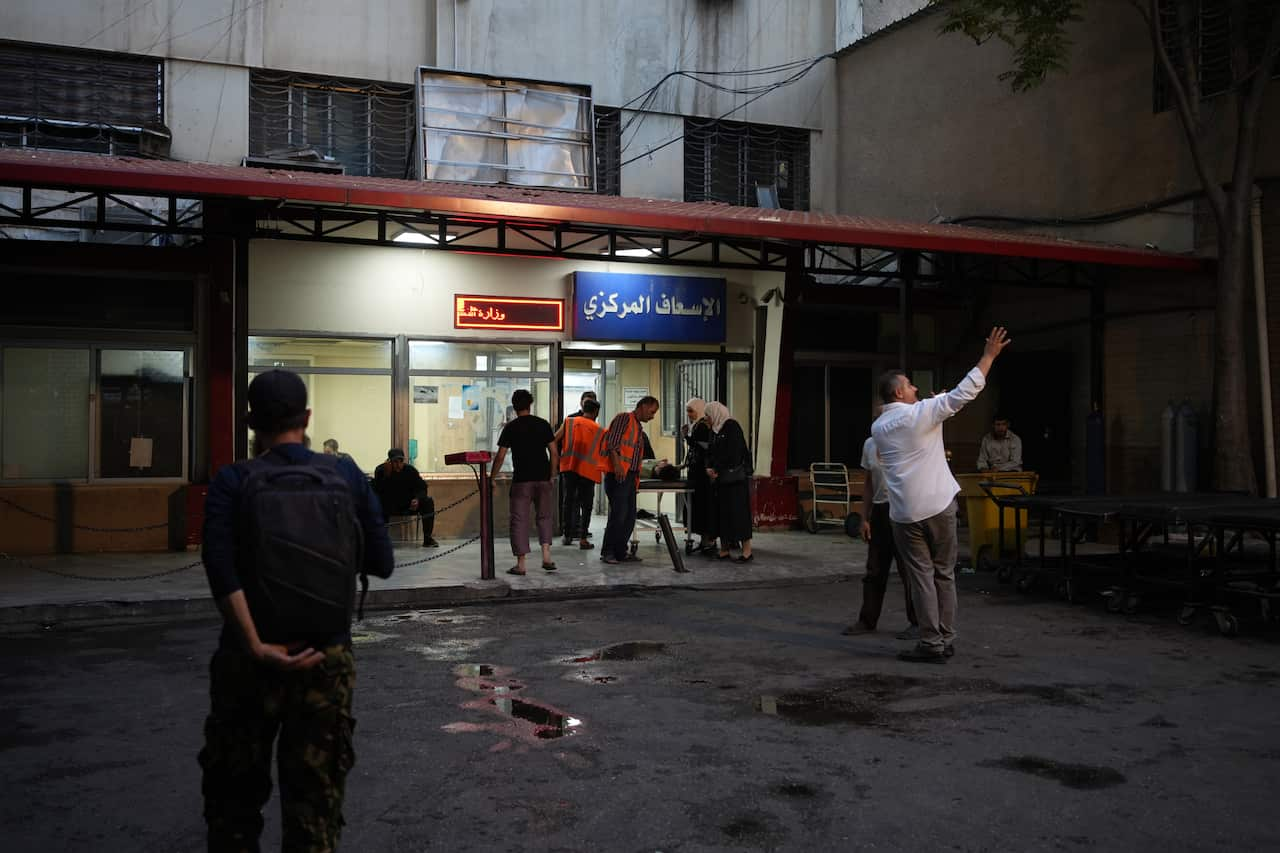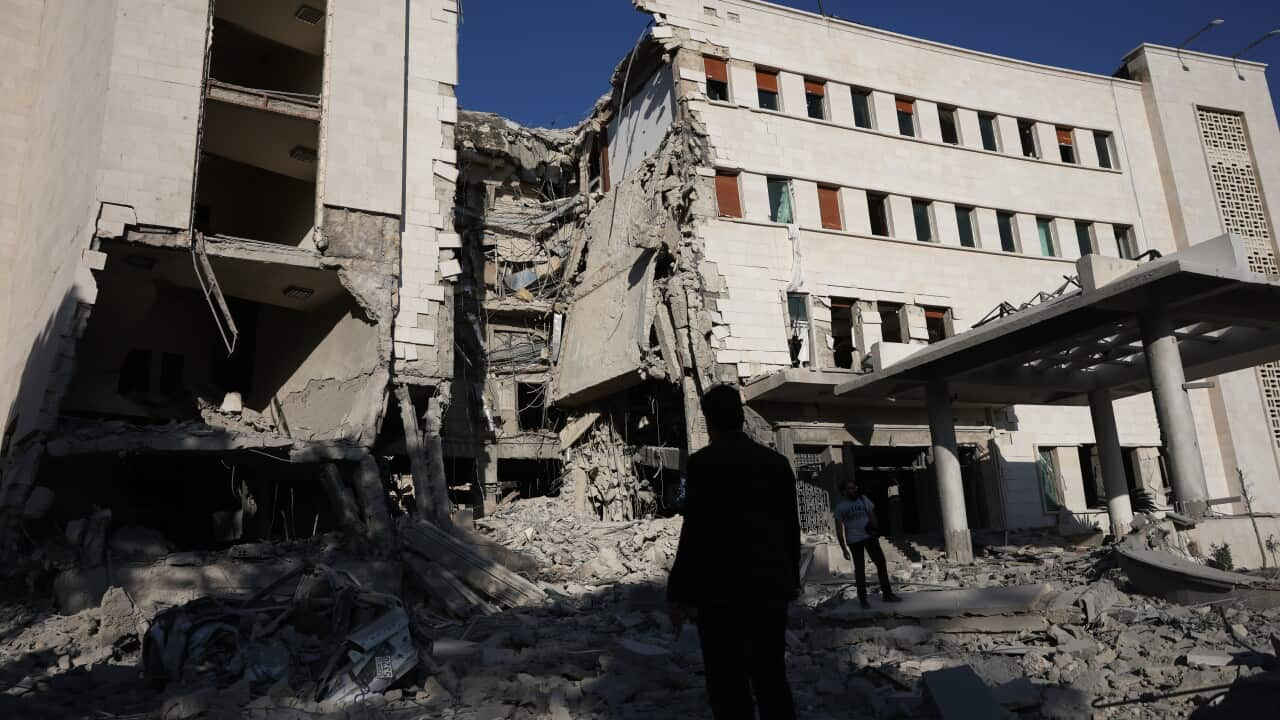Israel has bombed Syrian government sites and other targets since Monday, saying it was seeking to defend the Druze minority after sectarian clashes in southern Syria.
Technically at war with Syria for decades, Israel has said it would not accept the presence of forces of the Islamist-led government in the country's south, which borders the Israeli-occupied Golan Heights.
Israel started its strikes as Syrian government forces deployed to the heartland of the Druze minority in the southern province of Sweida, following clashes between Druze fighters and Bedouin tribes.
Israel has said it would intensify its attacks if Syrian forces do not withdraw from the south.
How did it begin?
Clashes began on Sunday between factions from the Druze religious minority and Bedouin tribes, who are Sunni Muslim, killing more than 100 people.
The two sides have a longstanding feud in Sweida.
Syrian government forces sent reinforcements to the region, in the country's south, saying they want to reestablish security.
But according to witnesses, Druze armed groups and the Syrian Observatory for Human Rights monitor, government forces and allied groups, including Bedouins, took control on Monday of several villages near Sweida that were previously run by Druze fighters.

On Tuesday, following contacts between Damascus authorities and notables from Sweida, the Syrian defence ministry announced a ceasefire after government forces had entered the city.
Before then, Sweida, home to around 150,000 people, was controlled by various Druze factions.
Syria's three main Druze spiritual leaders, who sometimes hold differing views on political issues, called on local fighters on Tuesday to lay down their arms.
But Hikmat al-Hijri, one of the leaders, then accused Syria of failing to uphold its commitment to enter Sweida peacefully and called for "resisting this brutal campaign by all available means".
Terrified residents of Sweida have reported numerous abuses since the entry of government troops and their allies, including executions, looting and burning houses.
Army headquarters, area near presidential palace struck
On Wednesday, Israel said it struck the headquarters of the Syrian army in Damascus, a compound that also houses the defence ministry.
Witnesses told AFP they heard an explosion in the area of the presidential palace, where the Israeli military said it had struck a "military target".
Syrian state television reported further Israeli strikes on the army headquarters compound, where a wing of the four-story building was destroyed.
The Syrian health ministry said at least three people were killed and 34 wounded in the strikes on Damascus.

Attacks on Sweida
On Wednesday, the official Syrian news agency SANA announced an Israeli drone strike on Sweida.
The day before, the Israeli military said it had bombed "military vehicles of the regime forces in Sweida".
On Monday, it struck several government tanks in the province.
Sweida province is home to the country’s largest Druze community, followers of an esoteric religion that split from Shi'ite Islam, who are mainly found in Syria, Lebanon and Israel.
According to the Syrian Observatory for Human Rights monitor, more than 300 people have been killed since Sunday in clashes between Druze fighters, Bedouin tribes and government forces, and in Israeli strikes.
The dead include 165 government forces but also 27 Druze civilians killed in "summary executions ... by members of the defence and interior ministries", the observatory said.
'Powerful blows'
On Wednesday, Israeli defence minister Israel Katz demanded Syrian forces withdraw from the south.
He promised troops would "operate forcefully in Sweida to eliminate the forces that attacked the Druze until their full withdrawal".

Katz said "the signals to Damascus are over — now come the painful blows", sharing Syrian television footage of an explosion in Damascus on his X account.
Syria said the Israeli strikes were a "dangerous escalation" and affirmed "its legitimate rights to defend its land and people".
New government
Even though it has initiated contact with the new Syrian government, headed by Ahmed al-Sharaa, Israel still remains extremely wary of the Islamist-led administration.
Since December, when Sharaa's group spearheaded an offensive that toppled longtime ruler Bashar al-Assad, Israel has carried out hundreds of strikes against military sites in Syria, saying its goal was to prevent weapons from falling into the hands of the new government.
Israel also sent troops into the demilitarised buffer zone on the Golan Heights — part of which it has occupied from Syria since 1967 — and carried out incursions deeper into southern Syria.
Some 153,000 Druze live in Israel, where they are citizens, and, unlike other Israeli Arabs, are subject to compulsory military conscription.
On Wednesday, Israeli forces fired tear gas to prevent dozens of Druze from crossing the frontier.
US says agreement reached
United States secretary of state Marco Rubio said on Wednesday in a post on X that "we have agreed on specific steps that will bring this troubling and horrifying situation to an end tonight".
The European Union urged "all external actors" to fully respect Syria's sovereignty and territorial integrity", later demanding Israel "immediately cease" its strikes.
United Nations secretary-general António Guterres also condemned the Israeli airstrikes.
For the latest from SBS News, download our app and subscribe to our newsletter.

